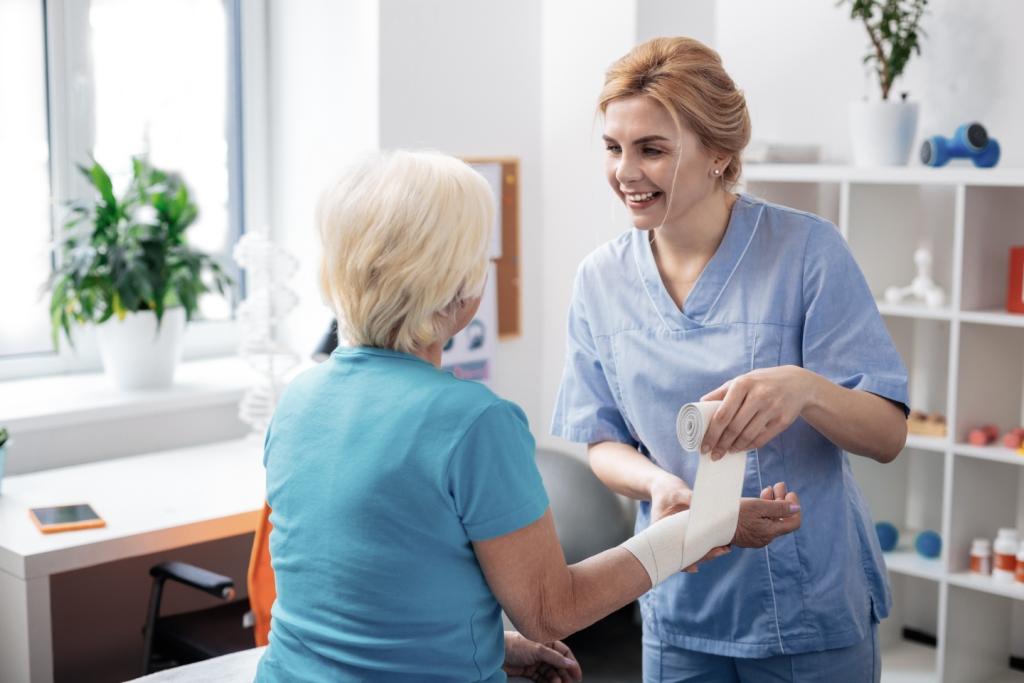Due to the communal nature of long-term elderly care facilities like the Holliswood Center for Rehabilitation and Nursing and the compromised immune systems that we all experience with age, communicable diseases such as MRSA are of particular concern to our staff and patients. Elderly patients are especially vulnerable to tears in the skin and pressure sores, increasing the incidence of open wounds, and raising the likelihood of infection. Staph infections like MRSA, for instance, result from bacteria that normally live harmlessly on the skin, but which can invade and proliferate in exposed interior tissues.
The easiest and most beneficial way to deal with the threat of MRSA is to prevent it whenever possible. Below are a few wound care measures that can be taken to help avoid the contraction and spread of MRSA and other staph infections.
- First and foremost, we should always clean and cover open wounds as soon as possible after they have occurred. If you or a loved one is living in a long-term care facility, please ensure that the staff is informed as soon as possible after the occurrence or the discovery of a wound, so that it may be addressed in a timely manner.
- Remember to never share personal hygiene items, such as razors or towels, and always wipe down shared equipment. This is especially true of the exercise equipment we use for rehabilitation and preventative physical fitness.
- Finally, keep up on personal hygiene. Staph infections like MRSA live on the skin, so the cleaner we keep the skin, the less of these bacteria we have to spread. Wash your hands, arms and face frequently, and consider using alcohol-based hand gels regularly.






